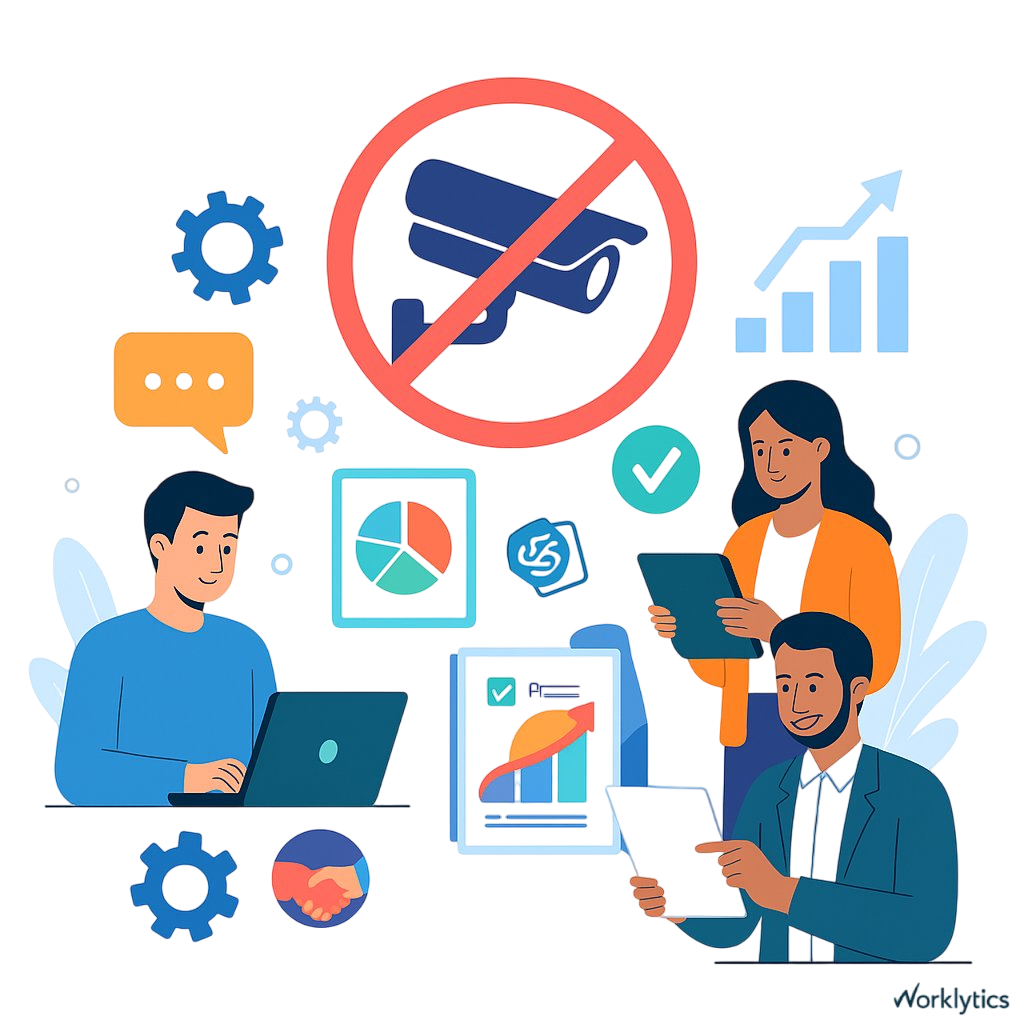
Top Workforce Analytics Metrics Every Business Should Track
Workforce analytics is essential for businesses to make data-driven decisions, optimize productivity, and improve employee retention. By tracking key metrics such as employee performance, turnover rates, workforce planning, engagement, HR costs, and leadership effectiveness, companies can move beyond guesswork and proactively address challenges. Metrics like error rates, customer satisfaction, attrition, and job satisfaction provide insights that enhance efficiency, reduce costs, and foster a positive work environment. Tools like Worklytics help organizations seamlessly integrate and analyze data while maintaining privacy, leading to smarter workforce strategies and long-term success.

How Employee Tracking Hurts Morale and Productivity
Excessive employee tracking, intended to boost productivity, often backfires by eroding trust, lowering morale, and fostering a culture of performative work rather than meaningful contributions. Constant surveillance creates stress, discourages creativity, and shifts employees' focus from quality to appearances, leading to disengagement and even counterproductive behaviors like task inflation and faked activity. Instead of relying on punitive monitoring, organizations should prioritize trust, autonomy, and outcome-based performance, fostering a healthier, more productive workplace where employees feel empowered rather than controlled.

Key Compliance Laws for Remote Employee Monitoring & Data Protection
With remote work rising, companies use monitoring tools to track productivity — but these must comply with laws like ECPA, GDPR, and CCPA to protect employee privacy. Transparency, consent, and limiting data collection are essential. Excessive monitoring harms trust, morale, and can lead to legal penalties. Ethical, privacy-first analytics offer a better approach, balancing insights with respect for employee rights.

How to Make People Care About Your Insights
We all know the allure of diving deep into a dataset and generating some fascinating insight. But all too often, insights end up being interesting without actually being useful. For insights to deliver real value, they must drive action. Here’s a guide of best practices to help ensure your insights lead to impactful change.

10 Reasons to Avoid Employee Monitoring
Employee monitoring has become a common trend in modern workplaces, often justified as a means to boost employee productivity and ensure accountability. However, the reliance on employee monitoring systems raises significant concerns regarding employee trust, engagement, and workplace culture.






